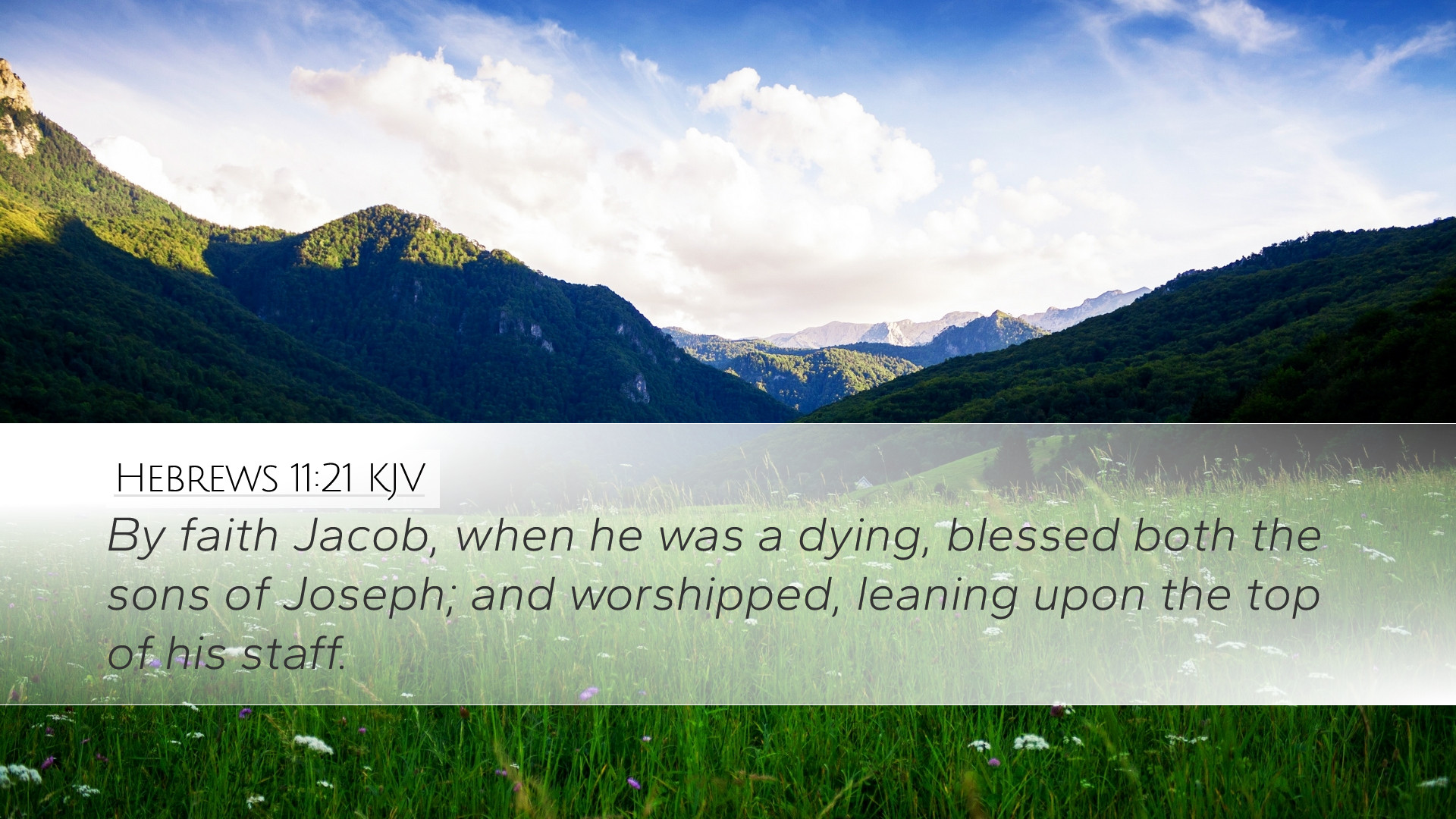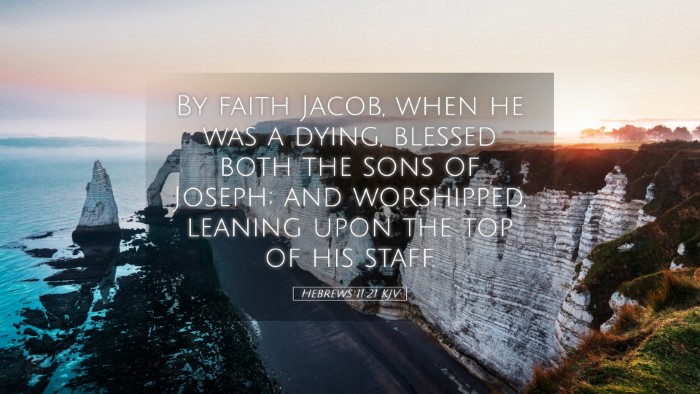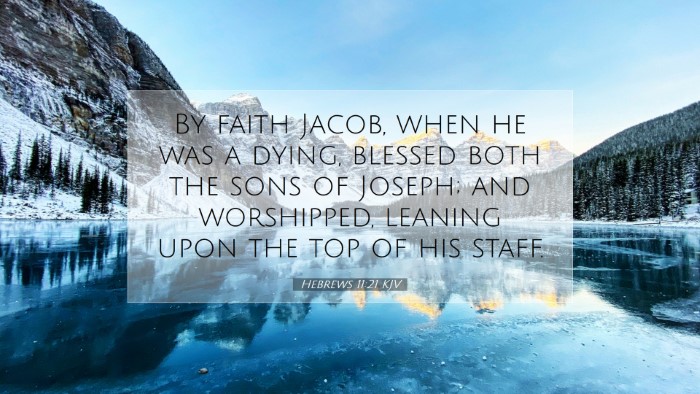Hebrews 11:21 - Commentary and Insights
Verse: "By faith Jacob, when he was a dying, blessed both the sons of Joseph; and worshipped, leaning upon the top of his staff."
Introduction
The faith exhibited in Hebrews 11:21 is paramount as it highlights a profound moment in the life of Jacob, the patriarch known for his struggle and transformation. This verse encapsulates an act of worship and blessing that underscores the significance of faith in God’s promises, even at the brink of death.
Contextual Background
Jacob's story, found in the Book of Genesis, is filled with complexity and rich theological implications. By the time of this blessing, Jacob was nearing the end of his life, reflecting on his journey and the covenant promise passed through generations. This passage serves as a reminder of how the patriarch's faith shaped not only his lineage but the unfolding narrative of God's people.
Commentary Insights
Matthew Henry's Commentary
Matthew Henry emphasizes the importance of the faith Jacob displayed during his last days. He notes that Jacob's blessing of Joseph’s sons was not merely ceremonial but a deeply profound act of faith in God's promises. Henry explains that Jacob, despite his past struggles and deceitfulness, was fully aware of God's sovereign plan, and this moment was a culmination of his journey towards spiritual maturity.
- Faith in God's Promises: Jacob's blessing signifies his belief in God’s covenant, recognizing that his lineage would continue to fulfill God's divine purpose.
- Worship in Suffering: Henry points out that Jacob worshipped while leaning on his staff, symbolizing both his physical frailty and spiritual strength derived from faith.
Albert Barnes' Commentary
Albert Barnes provides insight into the significance of the act itself. He indicates that the blessing of Ephraim and Manasseh was Jacob's way of passing on the spiritual heritage to the next generation. Barnes highlights that this wasn't just a familial blessing; it was a prophetic declaration concerning the future of Israel.
- The Role of Tradition: Barnes asserts the importance of blessing in the context of Jewish tradition, emphasizing how such acts carried weight and impacted God's people.
- Symbolism of the Staff: The staff represents Jacob’s pilgrimage; it denotes the journey of faith he undertook, showcasing his reliance on God throughout his life.
Adam Clarke's Commentary
Adam Clarke elaborates on the theological implications of this verse. He points out that Jacob’s act of blessing, coupled with worship, signifies his acknowledgement of God’s sovereignty and grace. Clarke notes that although Jacob was frail, his faith remained robust, demonstrating that true worship can emanate even from a position of weakness.
- Prophetic and Spiritual Insight: Clarke interprets Jacob’s blessing as prophetic, viewing it as a testament to the divine favor resting upon Joseph's sons.
- Leaning upon the Staff: The act of leaning on the staff is a powerful image of dependence on God, illustrating that true strength is found in recognizing one's vulnerability.
Theological Reflections
This verse communicates several essential theological themes that resonate through history and across various contexts:
- Faith as a Legacy: Jacob’s act illustrates how faith is not only personal but communal, laying the groundwork for future generations to follow.
- Worship and Dependency: The connection between worship and dependency on God is underscored, reminding believers that true strength is expressed through humble reliance on Him.
- The Blessing of the Weary: Jacob’s frailty mirrors the human condition, yet serves as a profound reminder that God actively uses the weak to fulfill His purpose.
Application for Believers
For pastors, students, theologians, and Bible scholars, Hebrews 11:21 offers not only historical insight but also vital principles for contemporary faith practice:
- Encouragement in Weakness: Just as Jacob leaned on his staff, believers can find strength in their weaknesses, reflecting on how God’s power is perfected in fragility.
- Faith in Action: The act of blessing others, especially the next generation, carries the responsibility to instill faith and hope, recognizing the significance of spiritual heritage.
- Understanding God’s Sovereignty: The act of worship should not be reserved for strong moments; believers are called to worship even in trials, acknowledging God's consistent faithfulness.
Conclusion
Hebrews 11:21 is a profound testimony to the enduring power of faith amidst life’s challenges. The reflections of Matthew Henry, Albert Barnes, and Adam Clarke converge to highlight the significance of Jacob’s actions at the end of his life as a model for believers today. The act transcends time, inviting us to engage in worship that expresses our complete reliance on God, ensuring that our legacies of faith continue far into the future.


